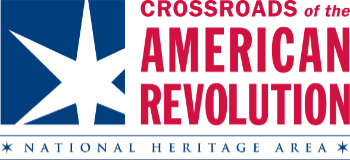Biography People
Philemon Dickinson Full Biography
I was born near Dover, Kent County, Delaware on April 5, 1739 on my father’s plantation. He was President Judge of the Court of Common Pleas for Kent County and a law student from my his office tutored me. I entered the College of Philadelphia in 1754 and was in its first graduating class in June 1757. For the next three years I supervised my father’s lands before moving to Philadelphia in 1760 where I studied law with my brother John. I was an early supporter of the protests against British laws enacted after the French and Indian War and signed the non-importation resolutions of November 7, 1765. In 1767, I married Mary Cadwalader and became owner of an estate on the banks of the Delaware about a half mile from Trenton.
On October 19, 1775 I began my military career and was commissioned as first brigadier general of militia, while future governor William Livingston was commissioned second brigadier a few days later. In 1776 I also became a member of the Provincial Congress of New Jersey representing Hunterdon County. In June that year I was appointed to a committee to draw up a constitution that also declared New Jersey independent. The Constitution was adopted two days before the Continental Congress Declaration of Independence. The New Jersey Constitution contained a clause making it null and void if Great Britain accepted the demands of the colonists. However, the actions of the Continental Congress on July 4 made this clause obsolete and New Jersey declared unconditional independence on July 18.
During the disastrous New York campaign during the summer and fall 1776 my troops served in eastern New Jersey guarding against British forays from Staten Island and New York City. We retreated with Washington’s army across New Jersey after the Battle of White Plains, crossed with the Continental army to Bucks County, and I established my headquarters at Yardley about four miles north of Trenton. Due to the conditions of the river ice on the night of December 25, my troops were unable to cross to help with the attack on the Hessians at Trenton. We were able to cross several days later and performed valuable service at the second battle of Trenton. Then, maintaining the camp fires, my militiamen helped convince General Cornwallis that Washington’s army remained encamped on Mill Hill the night Washington made a roundabout march to Princeton and defeated the British detachment there on the morning of January 2. During the British occupation of Trenton, my property became a Hessian outpost and the Hessians ransacked the buildings.
During the Forage War of 1777, my militiamen guarded the area near New Brunswick to prevent the British from sending out foraging parties to obtain food for the garrison. On January 20, 1777 my militiamen defeated a British foraging party of about 400 men and captured about 40 wagons and over a hundred horses, as well as other animals the British had collected. I received high praise from General Washington and several months later I was promoted to major general and commander-in-chief of the New Jersey militia.
After the British returned to New York in June 1777, we continued to call out large numbers of my militiamen each month to man the posts opposite the British garrison on Staten Island. On several occasions my troops made forays over to Staten Island to harass and disrupt the British and Loyalist forces. A foray on November 27, 1777 resulted in a number of casualties among the British, as well as prisoners of war brought over to New Jersey. Again, I received warm praise from General Washington.
While the British occupied both Philadelphia and Staten Island, in 1777 and until June 1778, my militiamen had to guard New Jersey on both its eastern and western boundaries. In May 1778, my headquarters was at Trenton when the British sent a force up the Delaware River to destroy our shipping and threaten Trenton. I had redoubts constructed to defend Trenton, but my militiamen at Lamberton, just south of Trenton, confronted them and succeeded in convincing the British to return to Philadelphia. My militiamen, and me, also received recognition for contributions to our victories at the battles of Monmouth, Connecticut Farms, and Springfield.
I performed a variety of public services both during and after my time as a general of the militia. In 1782 I was a delegate to the Continental Congress from Delaware, where I also owned some property. I also served in the New Jersey legislature. In 1784 I served on a committee formed to select a site for our new nation’s capital and I helped write the report that favored Trenton as the first choice and Philadelphia as second choice. I continued to be active in financial and civic affairs until my death on February 4, 1809 at the age of 70.
FURTHER RESOURCES
Dickinson, Philemon. Order Book Major General Philemon Dickinson Commanding the New Jersey Militia 1777-1778. Trenton: Public Record Office, 1929. (Transcript of the original) New Jersey State Archives, Department of Defense, Adjutant Genral’s Office (Revolutionary War), Copies of Miscellaneous Records, 1774-1837, box 1, item 27.
Dickinson, Wharton. “Philemon Dickinson: Major General, New Jersey Militia – Revolutionary Service.” The Magazine of American History; with notes and inquiries. Vol VII. New York: A.S. Barnes, 1881, 420-427.
Kidder, Larry. A People Harassed and Exhausted: The Story of a New Jersey Militia Regiment in the American Revolution. CreateSpace Independent Publishing Platform, 2014. This work contains a great deal about Dickinson as leader of the militia.
See also: the writings of George Washington and William Livingston for a number of letters between these men and Dickinson.
